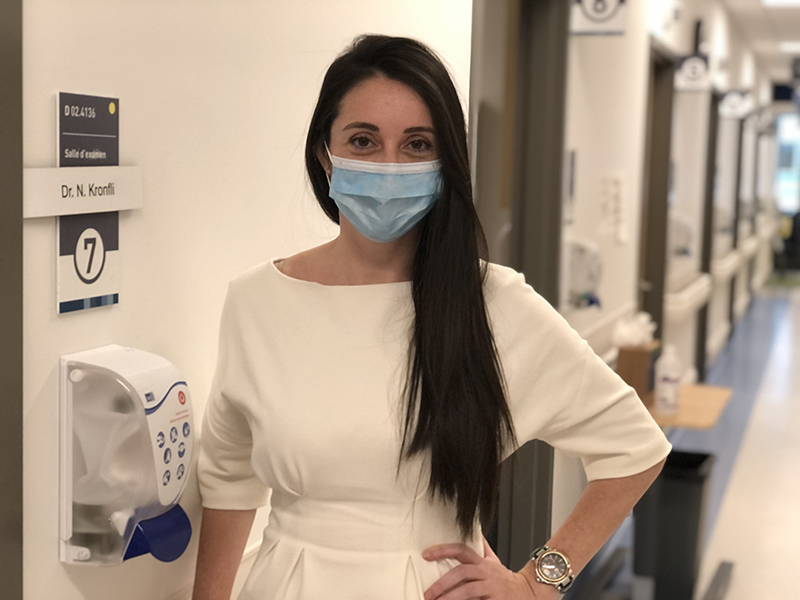COVID-19 in prisons: understanding the spread of the disease

Since the start of the pandemic, COVID-19 rates in Canadian correctional facilities have been several-fold higher than the general population. However, the extent of the epidemic behind prison walls remains unknown.
To better understand the true spread of the virus in these settings, Dr. Nadine Kronfli, scientist in the Infectious Diseases and Immunity in Global Health Program at the Research Institute of the McGill University Health Centre (RI-MUHC), is conducting a study to determine how many incarcerated individuals and correctional employees in select Quebec provincial prisons have SARS-CoV-2 antibodies, suggesting that they have been previously exposed to the virus. Her study is one of four seroprevalence studies in Canadian correctional facilities funded by The Government of Canada through Canada’s COVID-19 Immunity Task Force (CITF).
“Provincial prisons are congregate settings where vulnerable individuals are temporarily housed, many of whom have risk factors for COVID-related morbidity and mortality,” says Dr. Kronfli, who is also an Assistant Professor in the Department of Medicine at McGill University. “Furthermore, the majority of people incarcerated in provincial prisons are sentenced for less than 30 days. When released, many face socioeconomic challenges related to housing and employment, further exacerbating their risk of COVID-19.”
All correctional workers and men incarcerated in three provincial prisons - l’Établissement de détention de Montréal (EDM), l’Établissement de détention de Rivière-des-Prairies (EDRDP) and l’Établissement de détention de Saint-Jérôme (EDSJ) - are eligible to participate in the study.
“Daily movement of staff in and out of correctional facilities can introduce SARS-CoV-2 infection inside and contribute to transmission outside,” adds Dr. Kronfli. “It is important for us to focus on both populations to inform public health policy recommendations.”
Participation is completely voluntary and all participants are given their serology test results confidentially. A total of 1,200 participants will be recruited among the three sites, which represent approximately 45 per cent of all adults detained in Quebec provincial custody.
The other studies among correctional populations funded by the CITF involve some federal institutions across the country and provincial prisons in British Columbia and Saskatchewan. These studies will help both identify how SARS-CoV-2 spreads within correctional facilities and inform planning for vaccine rollout in these congregate settings.
“While the National Advisory Committee on Immunization has prioritized those living or working in prison settings for COVID-19 vaccination, few have been vaccinated to date. The realities of incarcerated individuals and those working behind prison walls during the pandemic needs to be a topic of greater provincial and national discourse. They are priority populations for COVID-19 vaccination,” emphasizes Dr. Kronfli.
As an Infectious Diseases specialist, Dr. Kronfli has worked with various vulnerable populations whose voices are often left unheard, including people who inject drugs and asylum seekers. Over the next few months, she will continue her work with incarcerated individuals in a study that aims to increase COVID-19 vaccine uptake for incarcerated Canadian populations and funded by the McGill Interdisciplinary Initiative in Infection and Immunity (MI4).

